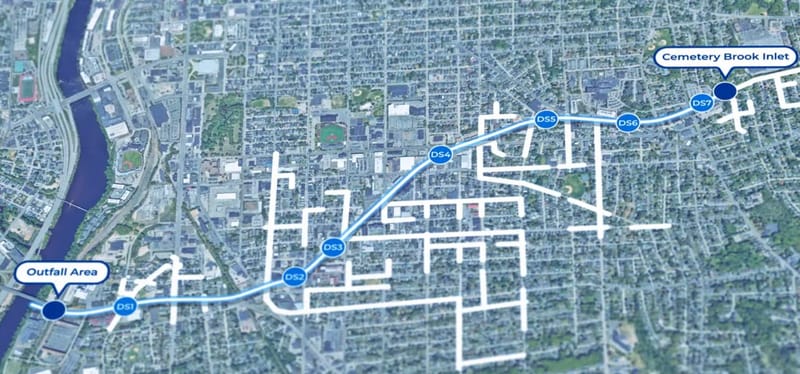Homeless popping up in other parts of city after moved from public property
Tom Puskarich who operates Restoration Café at 235 Hanover St., said one of the unintended consequences of the city’s decision to prevent the homeless from camping in city parks and on sidewalks is that they are gravitating to areas where they are vacant, privately owned buildings. And that, he sai
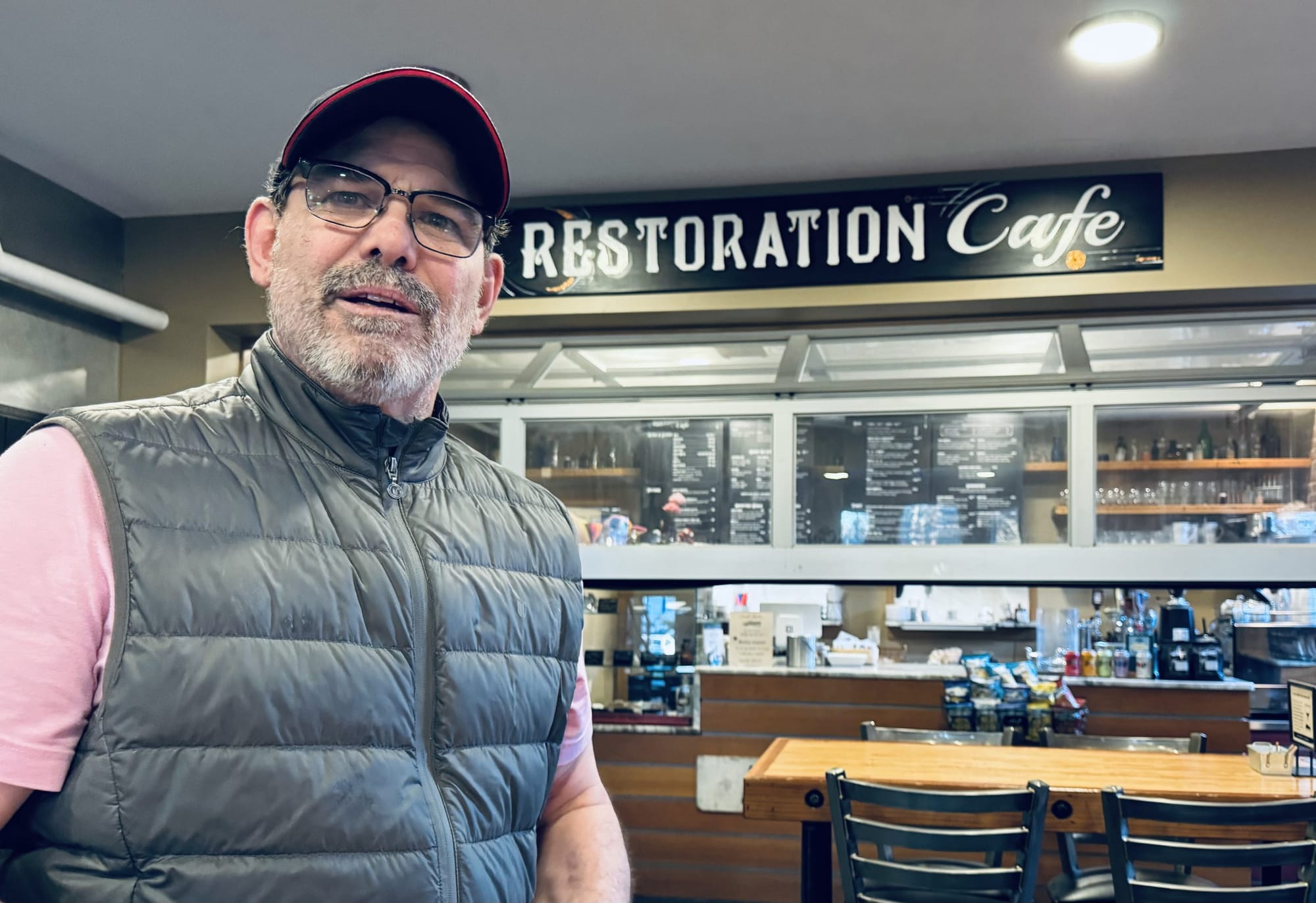
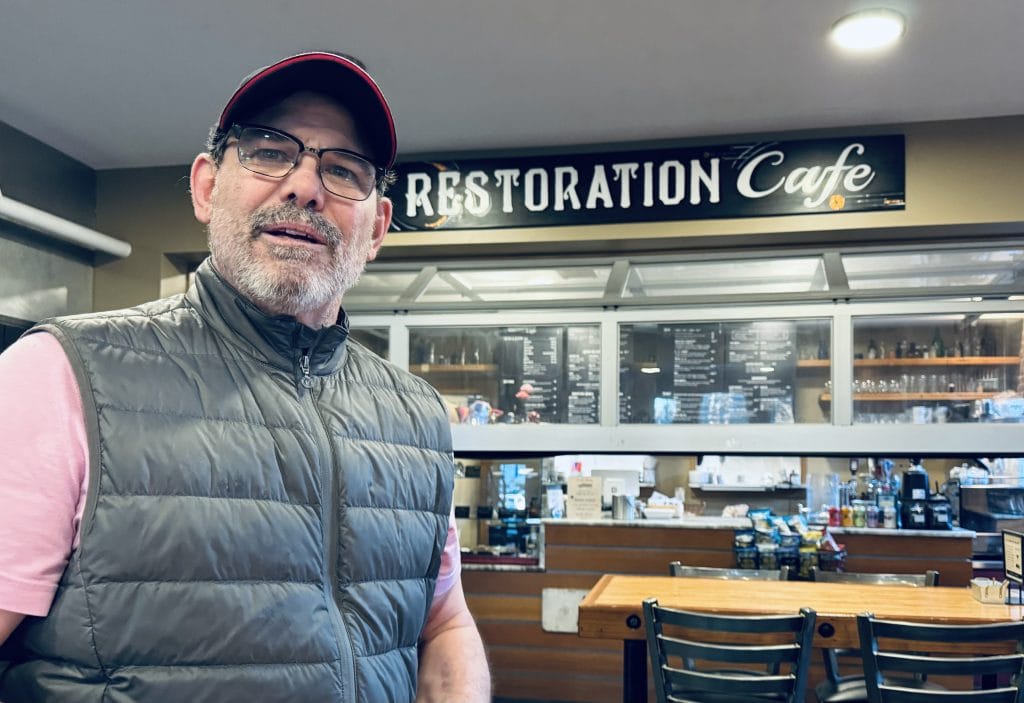
MANCHESTER, NH – Last July , when city officials approved the removal of the homeless from public property, it resulted in the same problems for business owners a block or two east where they relocated.
Tom Puskarich who operates Restoration Café at 235 Hanover St., said one of the unintended consequences of the city’s decision to prevent the homeless from camping in city parks and on sidewalks is that they are gravitating to areas where they are vacant, privately owned buildings. And that, he said, has affected his business.
The Board of Mayor and Aldermen approved the removal of homeless people from parks and city streets, day or night, regardless of emergency shelter availability. Mayor Jay Ruais, at the time, said the city has the resources to support people who choose to live on the streets.
“If you want help and you need help in the city of Manchester, it exists,” Ruais said. “What we won’t tolerate is people breaking our laws or ignoring our ordinances.”
Puskarich said previously there would be “spill over” of the homeless from the Families In Transition shelter a street away at 199 Manchester St. However, he said he encountered few problems with them.
“It’s not the same population,” he said of what is happening now.
On Nov. 7, 2024, on his Facebook page Puskarich wrote that his biggest fear was “having circumstances out of my control have an impact on my business.
In the last six months negative comments from customers are showing up on the review sites. “I am losing staff who are not feeling safe in the neighborhood. I can’t even consider doing dinner service because of safety reasons,” he says.
In the last two weeks, says Puskarich, a tenant in the building was jumped and robbed as he was entering the building.
One employee quit saying they didn’t feel safe parking and walking into work.
The cafe is a block away from the Hanover Street Chophouse, one of the state’s most expensive restaurants. Yet, in the four months since the Mayor and Board of Alderman voted to bar camping on public property, there no longer is any foot traffic on Hanover Street, between Union and Pine streets, Puskarich said. Instead, there are numerous homeless people and he said, some are confrontational.
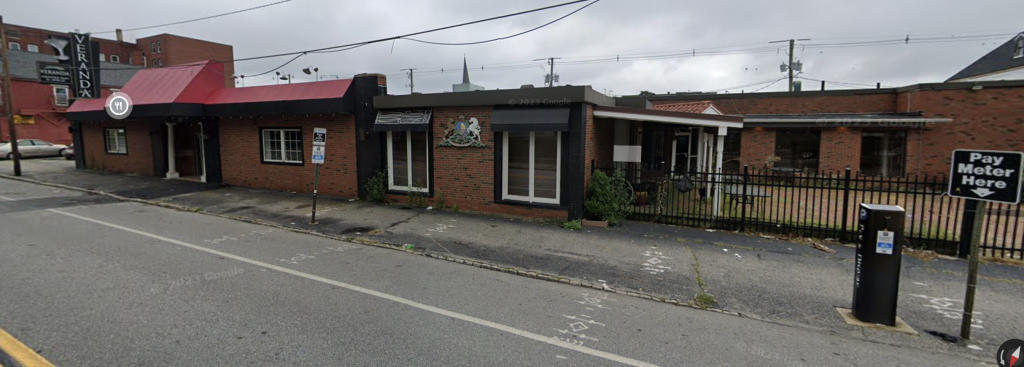
In that short stretch of street of Hanover Street, there are four properties completely vacant along with one empty retail store front. The vacant properties include: a storefront, formerly Madear’s restaurant at 175 Hanover St. (the building also houses City Tailor and has apartments above); the former Veranda Martini Bar & Grill/Chateau Restaurants at 201 Hanover St.; 215 Hanover St., that once housed Jacques Press, and 221 Hanover St., former home to a barber shop and previously the location of Kanteres Real Estate.
Albert J. Azzi of Encore Properties bought the former Jacques Press property for $150,000 in 2017, according to the city assessor’s online database. The building is marked with an “X,” indicating it is unsafe for emergency personnel and requires extreme caution.
Azzi said the property was not condemned. He said when he bought it, it was filled with “quite a bit of junk.” He renovated the second floor, and some construction material was left on the roof, causing an issue and resulting in the property being marked with the “X.” The construction debris has since been removed, he said.
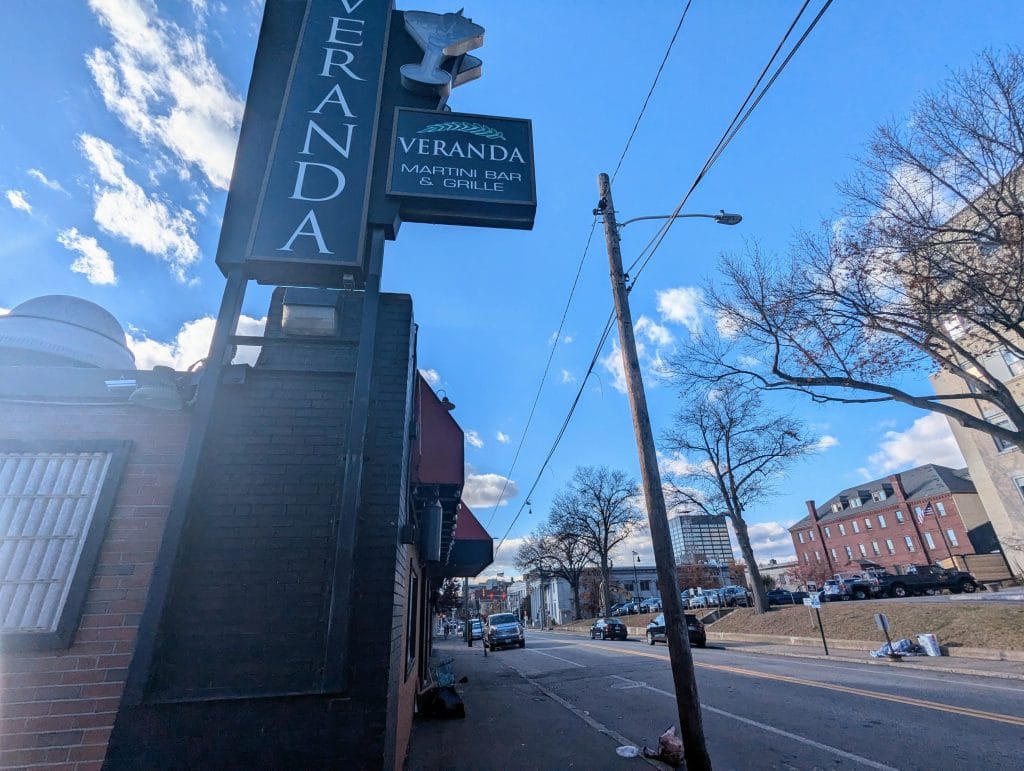
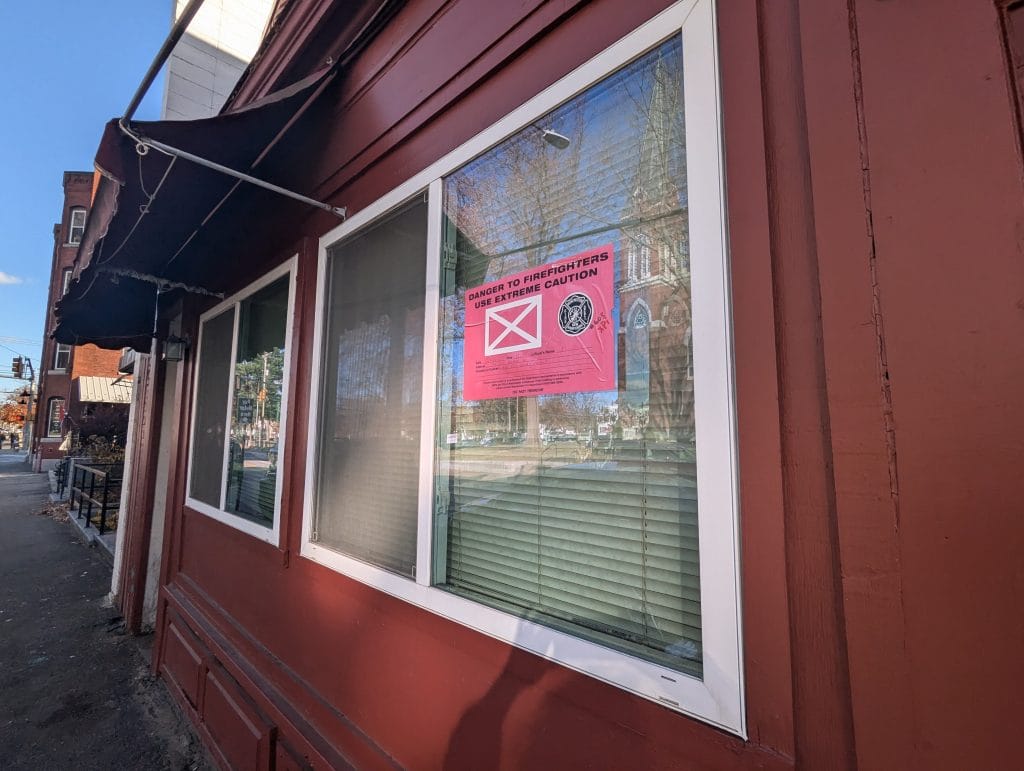
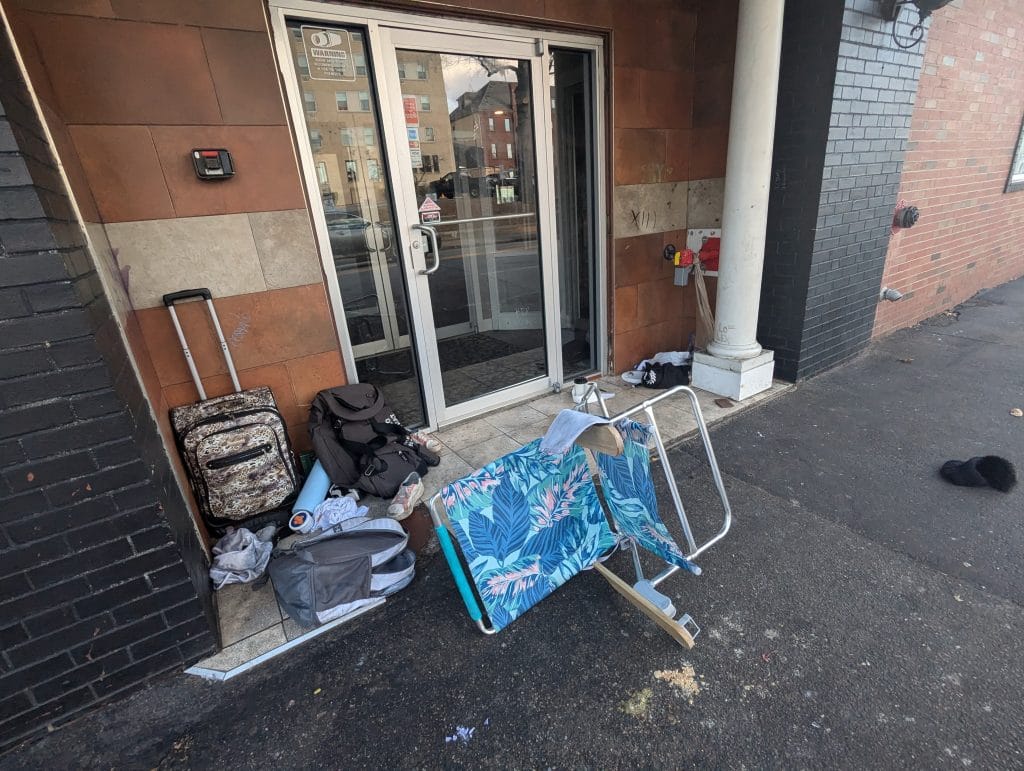
He stopped rehabbing the building because he thought a new owner would want to open a business on the first floor and live above it.
“I want to get out of the construction business,” he said.
Azzi said a few people have taken a look at the property, which he wants to sell, but he has yet to find a buyer.
He said he has had no problems with the homeless. He said occasionally, one might sit on the steps and eat lunch and leave wrappings behind but none has tried to or broken into the building.
Manchester Ink Link reached out for comment to Yash Pal, owner of 221 Hanover St. and Fakhar Ud Din of Bedford, manager/owner of the Chateau. Puskarich said Ud Din and his investors/family also own Down the Block, the variety store on the corner of Hanover and Pine streets. Manchester Ink Link received no response from either of them.
Anne Williamson is listed in the city assessor database as the owner of 175 Hanover St. building. She died last year.
Puskarich gave a reporter a guided tour of the area, pointing out the vacant buildings. On a recent Wednesday afternoon, three people, one with a blanket wrapped around them, were congregating in the rear alley behind the Chateau.
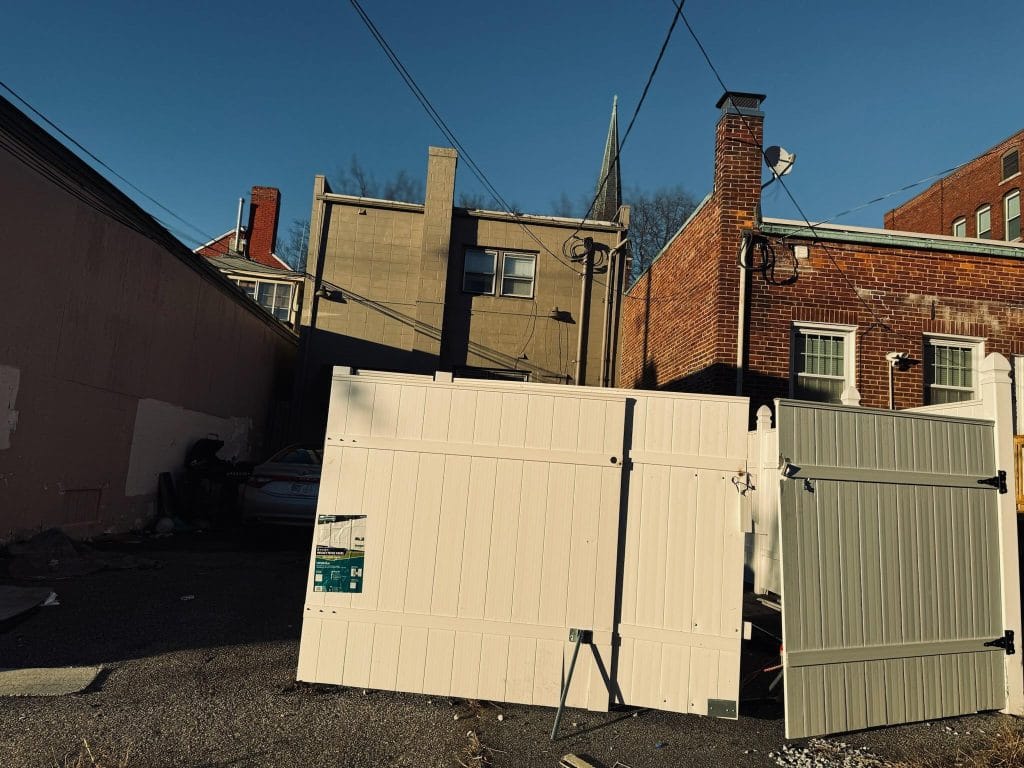
Puskarich pointed to two vehicles parked behind the vacant 221 Hanover St. One person, he said, for months has been sleeping in the parked van, while another has been squatting inside the building. Two barbecue grills, also sited there, are in use. Pal installed a white fence earlier in the year, but someone forced it open.
Puskarich said he doesn’t fault the city, which has various programs and shelters in place for those in need, yet the homeless problem persists. He believes owners have a responsibility to their neighbors to maintain vacant properties, including discouraging the homeless from camping outside them.
Kevin Dionne, code enforcement supervisor of Planning and Community Development, said all vacant buildings must be kept secure.
“The International Building Code requires vacant buildings to be secure against unauthorized entry and is enforced by the Planning and Community Development Department. Breaking and entering would be considered a police matter,” he said in an email.
On that Wednesday, there were plenty of parking spaces surrounding Bronstein Park, across from The Flats. There wasn’t a homeless person in sight on Hanover Street, not counting the three in the back alley. The week before, there wasn’t a parking spot anywhere near the park; many people without homes, who live in their cars or trucks, park their vehicles in that area because they say it is a safe place.
Police from time to time force those on Hanover Street and around the park to move along and they comply, only to return later, according to Puskarich.
“It’s like Whack-a-Mole,” said Puskarich. “They keep popping up.”
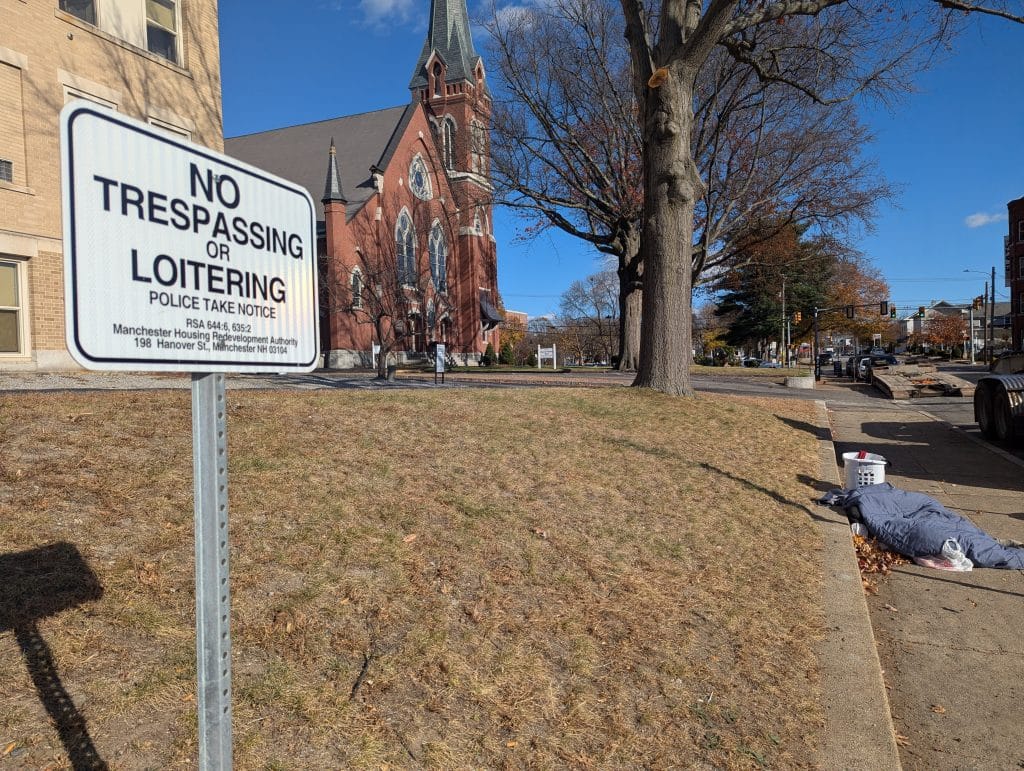
Nighttime is another story. Puskarich said it is like “skid row” with the homeless camped out on the sidewalk. He said police don’t bother them when they sleep but when the sun comes up, officers move in and clear out the street.
Puskarich said he did not have a problem with the homeless in the eight years he operated his cafe until the city’s policy change. There was a woman he suspected was homeless who, as the weather turned cold, would come into the café, order a tea and sit at a table for 90 minutes or so.
Months later, he said, he received a letter from her thanking him for his kindness. He said she told him she had been temporarily homeless because of a mental health issue but received services and now has an apartment and is doing well.
“I have no problem with the homeless using the restrooms or coming in, having a cup of coffee and staying a while, as long as a table isn’t needed,” he said. However, he said he expects them not to destroy the restroom or lock themselves inside the bathroom, as just recently happened.
“I am not unsympathetic but my empathy meter is running on empty,” he said.
Ward 3 Alderman Pat Long is aware of the problem and said he has talked with Mayor Ruais about it. A meeting with business owners is set for Dec. 2 at 11 a.m. at the First Congregational Church, which has experienced its own issues with the homeless, he said. People, he said, were sleeping underneath the overhang and around the church but that has now been cleared.
The problem, he said, is finding somewhere to place the people being moved.
“They’re unhoused so they have to sleep somewhere and they’re not moving to Chicago,” Long said.
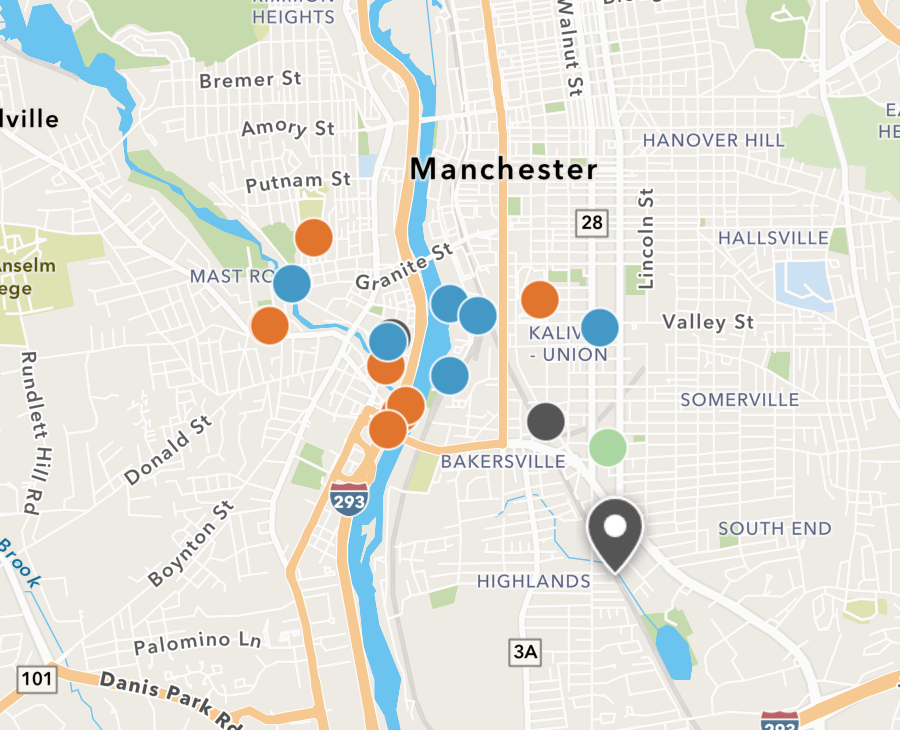
He said it is a problem being encountered by other cities in New Hampshire and across the nation.
And, of course, there are people who are alcoholics or drug addicts who do not want help or shelter where they would have to abide by rules.
“A lot of houseless want to continue what they’re doing,” Long said. “Some say I’m all set – you want me to clean up and get a job, I don’t want to do that.”
He said but there are those who find themselves without a home because of bad luck or they can’t find a place they can afford.
“We’ve been successful in transitioning them,” he said, meaning finding them work at jobs that pay between $16 to $18 an hour.
Long said one positive, from the action taken by the aldermanic board, is that more people are seeking services at the Engagement Center on Beech Street. A downside, he said, is there aren’t enough case managers to serve the population.
He said the city is working with a group of churches to train people and have them engage with the population at the center for a couple of hours a week. It could mean just playing a game of cards or checkers with an individual, he said.
“We don’t have enough people to connect with them and walk them through the process (to obtain services),” he said. “We need more case management.”
He said when the city first cleared the homeless from Veterans Park and Victory Park, there were numerous problems, not unlike what is happening on Hanover Street.
“When we first moved them out of the parks it was horrible,” Long said. “It was an everyday effort to clear them out. It was affecting people in the (Governor) Hugh Gallen (Apartments), Bronstein Park, the café, the Saigon Market. A lot of it has been taken care of but we are not where we want it to be.”
Long said Mayor Ruais and Irina Owens, the city’s Homeless Initiative Director, are expected to attend the Dec. 2 meeting at the First Congregational Church. The 11 a.m. meeting is not open to the public.




